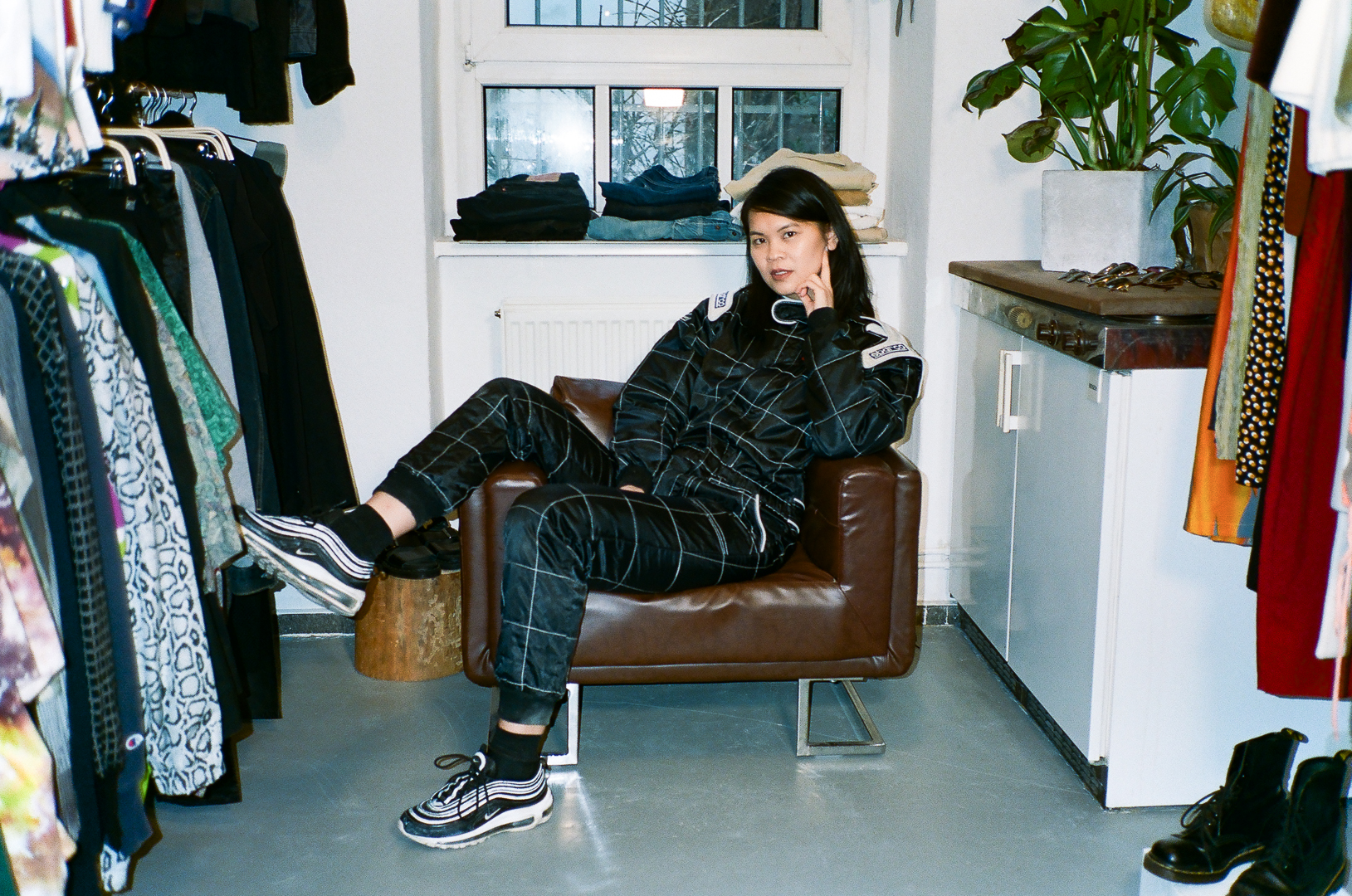[Best_Wordpress_Gallery id="2" gal_title="Berlin Fashion Week July 2018"] Berlin Fashion Week street style snaps at Seek…
Lisa N’Paisan
Founder of Not Too Sweet and 2ndhand advocate26 January 2021
With consumer choices becoming ever more impactful in a world overrun with fast-fashion and excess, leaders in the vintage and secondhand fashion industry are looking to position re-using already existing garments as not only fashionable but ethically important, and morally imperative.
We sat down with Lisa, the founder of sustainable vintage shop Not Too Sweet, to discuss secondhand garments, founding her own business, and the influence her parents and upbringing has had on her life:
Hey Lisa! Can you please introduce yourself for those who are not already familiar with you and Not Too Sweet?
Lisa: Born and raised in Sydney, I completed my business uni degree and was on a more traditional path. But having watched my Vietnamese and Thai parents work hard to grow their fashion business, I was inspired to follow in their footsteps. I quit my full-time job and moved to London where I founded Not Too Sweet, an online vintage shop built on being ethical and cruelty-free. I then moved to Berlin. Over the years, I expanded to selling ethical jewelry and reworked vintage from local Berlin fashion designers, both online and in a concept store in Neukölln, Berlin. Today, I enjoy meeting other founders of small businesses and creatives to collaborate, share ideas, and grow together.
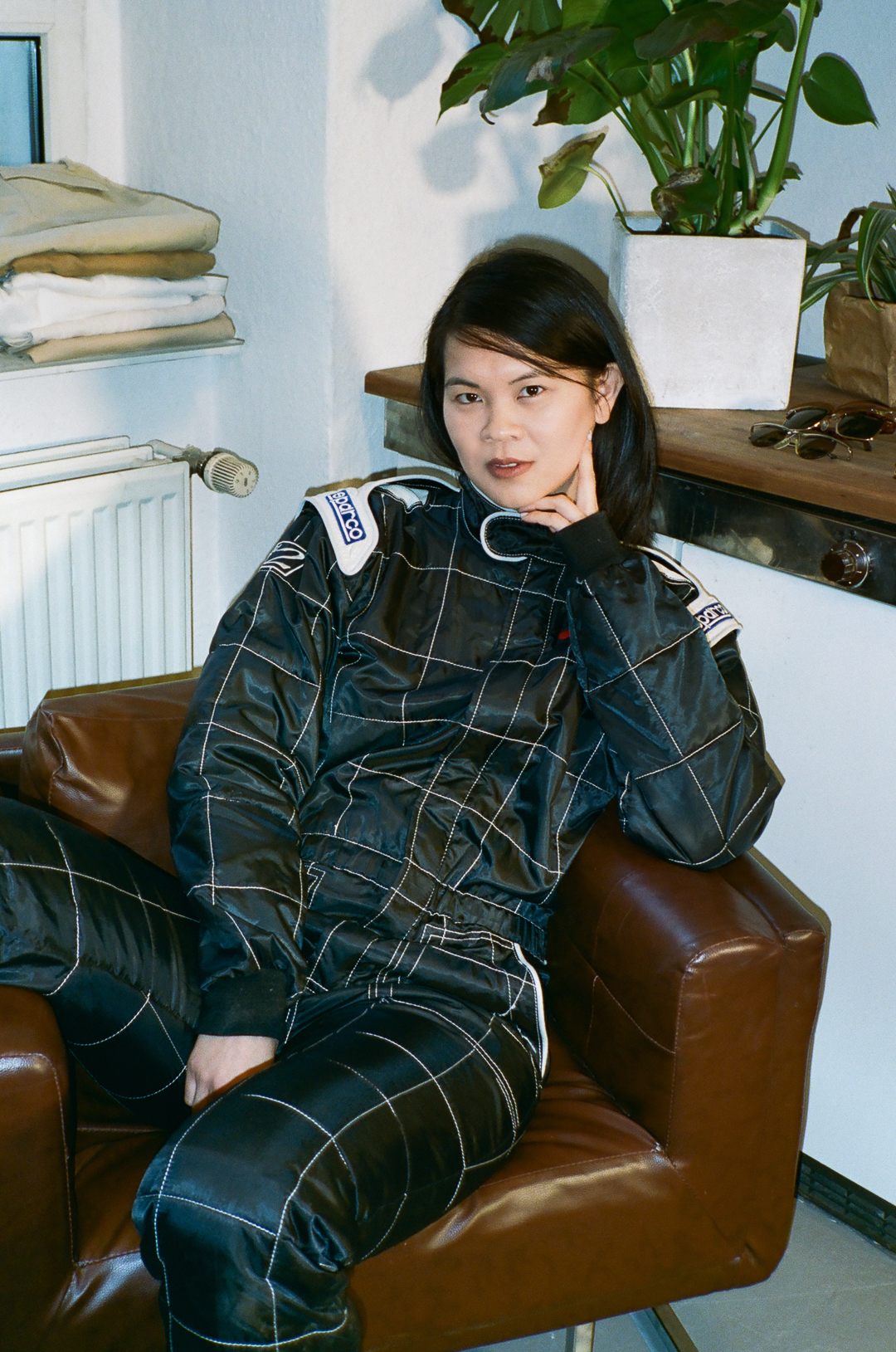
What was it like growing up with parents working in the fashion industry?
Lisa: When I think about my childhood, I recall the sounds of sewing machines and playing hide and seek amongst the rolls of fabric in my parent’s clothing manufacturing factory in Sydney, Australia. It was far from the glamorous image synonymous with the fashion industry we see today.
Back then, I was ashamed of that part of me. One memory that will forever stick with me, is when my primary school friends secretly followed me back home from school and were calling my name from the bottom of the stairs. I was mortified and embarrassed for them to discover that I grew up in a factory. But throughout my adolescence, I came to appreciate the uniqueness of my upbringing and how hard my immigrant parents worked to be able to provide for my brothers and I. Watching my parents manage a whole clothing production line to opening up multiple retail shops across Sydney taught me that hard work and perseverance pays off. I often find myself seeking advice from them regarding my own fashion business.
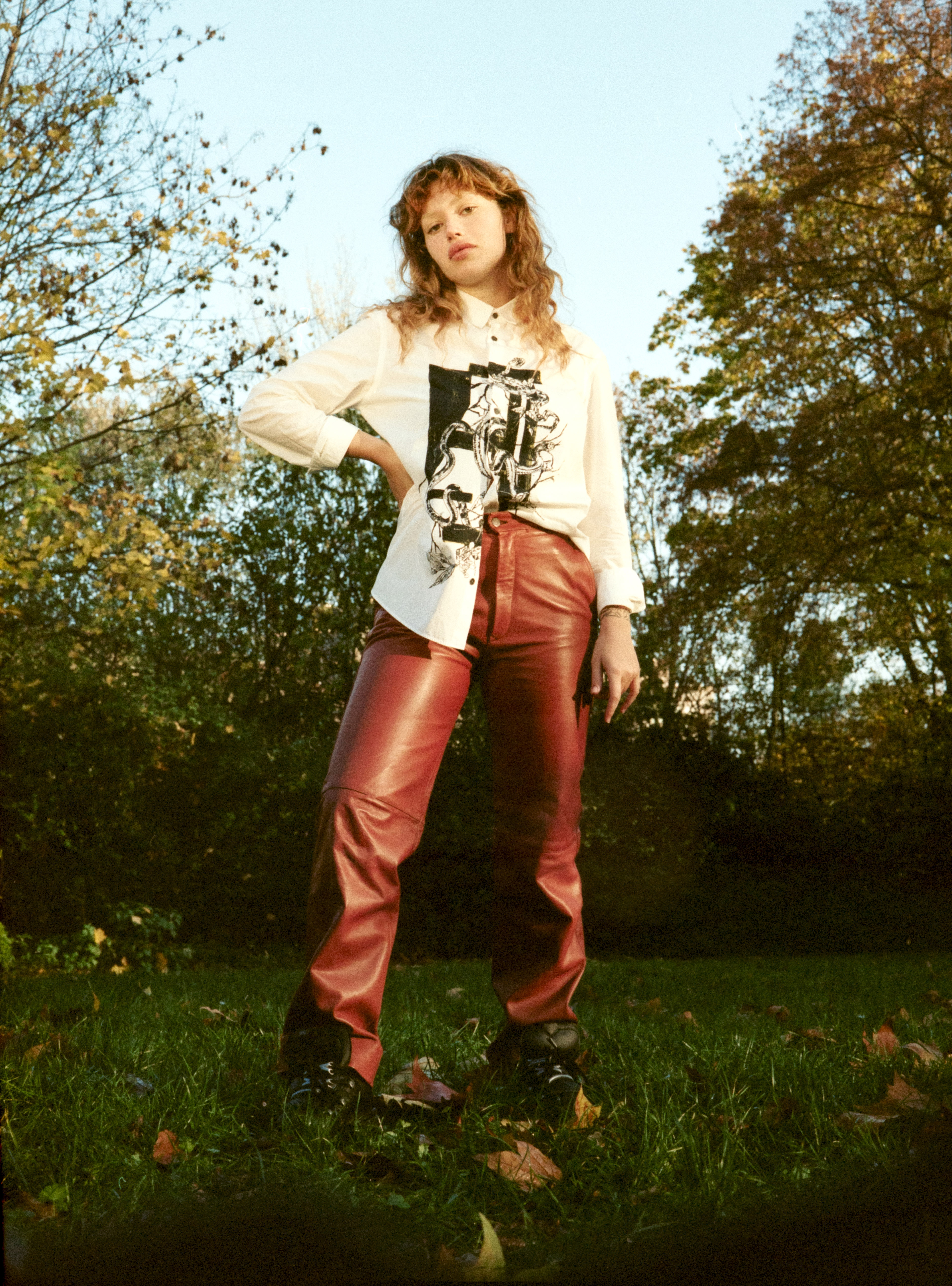
Producer: Chiara Leoni @_kapitel5⠀
Photographer: Milan Koch @milan_koch_⠀
Videographer: Kristopher Guarniz @draagonstudio⠀
Model: Gia Söder @mt.gia ⠀
Set assistant: Hannah Mammes @_hannahmammes_
Berlin and London are both communities with huge populations of people who have come from other places to now call these cities home. These populations are commonly divided into two groups: immigrants and expat (expatriate). The distinction between these two groups are complicated and the terms themselves highly political. As someone whose parents are considered immigrants but who also has left their place of birth for someplace new, do you consider yourself an immigrant or expat and have you thought about the problematic nature of this distinction?
Lisa: I personally see myself as an expat as I am temporarily residing outside of my home country for work-related purposes. And I would say people within my community would also view me as an expat. However, I think the problematic nature of the distinction between expat and immigrant lies in how others perceive me based on my race.
On a regular basis, whether I’m catching an Uber or ordering food, [strangers] will assume I’m a student and ask me “Are you studying in Berlin?” They automatically place me in the student migrant category because I am a young Asian. When I reply that I have my own clothing business in Berlin, their responses fall into one of two categories: disbelief or impressed. The term “expat” tends to be allocated to white people, while “immigrant” is often associated with Asians and other racial and ethnic minority groups. The justification for this way of thinking stems from harmful stereotypes and perpetuates othering.
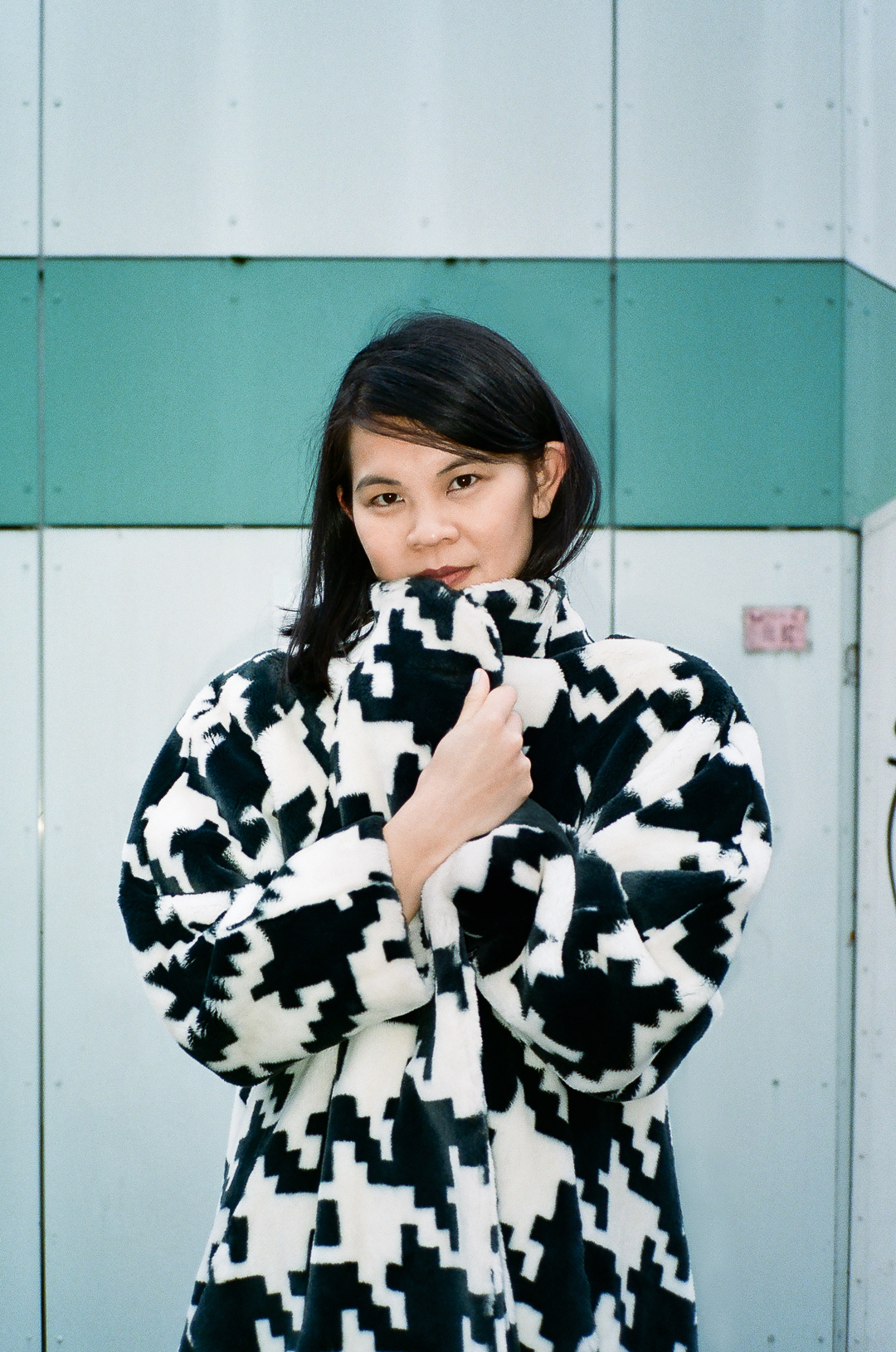
In 2020, we saw a big push for supporting black-owned and NBPOC (non black people of color) businesses due to systemic issues that plague small black and NBPOC business owners. What has your experience as an Asian business womxn been like?
Lisa: It was so incredible to witness people actively educating, seeking, and supporting black-owned and NBPOC businesses last year. And I truly hope that people will continue to do so in 2021 and beyond. This way, small businesses and entrepreneurs can continue to create opportunities within their communities.
As an Asian business womxn, you hear statistics such as “3% of companies with capital venture funding had female CEOs” which is alarming for the industry but especially black and NBPOC female CEOs. I’ve always bootstrapped my businesses. I never even thought of the possibility of reaching out to an investor because of the statistics you hear. But then three years ago, an investor reached out to me to purchase a mobile gaming app I had co-founded with a friend. It took this experience to realise that I am worthy of an investor’s time, which I always was.

Models: Helena Grant @rxptors Linh Nguyen @ndvlinh⠀
Set designer: Chiara Leoni @_kapitel5⠀
Stylist: Anh Dinh @anhdinhstylist⠀
Make-up artist: Vanessa Ross @vanessaross_⠀
Assistants: Julia Goodwin @julialeegoodwin Lisa N’Paisan @lisa.kuro⠀
Casting: Rae Tilly @raetilly.shoots⠀
What motivated you to open The Black Market in the first place?
Lisa: Secondhand clothing and furniture was always encouraged by my mum. We would spend our weekends traveling to flea markets around Sydney and rummaging through racks at Salvos charity shops, selling the odd find on eBay. So when I worked as a copywriter for a successful vintage chain in London, I had the lightbulb moment of “I can do this too!”
To compete against larger vintage chains in London, I wanted to create a niche brand that educated people on the benefits of vintage whilst staying true to my style, which was wearing all-black vintage clothing, hence the name of my brand. However, my style has evolved over the years, and so has my brand.
You have not only lived in many different places (Sydney, London, Berlin), you’ve also run your own business in various locations. Entrepreneurially speaking, how do London and Berlin differ and in what ways are they similar?
Lisa: Since London’s cost of living is much higher than Berlin’s, my business was always a side project to my full-time jobs. When my two-year working holiday visa in London was over, I had to decide between committing to a full-time job for a visa extension or moving to a more affordable city where I could finally dedicate myself to my business. Spoiler alert: I ended up moving to Berlin and haven’t looked back since.
As a small business, collaborating with other creatives was pivotal to the growth of my brand. This was something harder to come across in London due to the high cost of living. Berlin is seeping with creativity and support from within the community, which makes it a wonderful place to grow and sustain a small business.

You recently opened your first brick and mortar location as part of a concept store (in Neukölln, Berlin). What has this experience been like, and how does it differ from working strictly in e-commerce?
Lisa: It’s funny because when I started my online business, I never envisioned having a brick and mortar location due to the high barrier costs. But now that I have a physical location where customers can try on the clothes and get to know me on a personal level, I’m surprised I didn’t open one sooner. While there are certainly higher initial costs involved in opening up a brick and mortar location, the time-consuming steps such as photographing all the products and shipping packages are stripped away.
It can also get lonely running an online business, but having a brick and mortar location introduced me to other shop owners who were so welcoming. We actually had an amazing vintage pop-up where four vintage brands were involved. That’s something I didn’t have access to in the past. But if there’s one thing the pandemic has taught me, it is that I need an e-commerce website too. So I’m also very grateful that I had an existing e-commerce website when the lockdown was enforced in Germany.

Photographer: Julia Goodwin @julialeegoodwin
Stylist: Chaz Aracil @azaoasis
Make-up artist: Estere Karklina @st.estere
Production: Lisa N’Paisan @lisa.kuro
How has COVID-19 impacted you as a small business owner?
Lisa: The last year has been really tough for small businesses. The hard lockdown which was enforced by the German government meant that I had to close my brick and mortar location only three weeks after the opening. And while I have an online business, I’ve definitely noticed a change in consumer spending. With job losses and job insecurity comes economic uncertainty, so people are definitely spending less on non-vital purchases such as clothing. But I’m taking each day as it comes, and am fortunate my business has survived the pandemic thus far.
The Black Market is entirely made up of second hand vintage pieces. Were the ethical aspects of selling already existing items a main motivator?
Lisa: My main motivator for selling vintage clothing has definitely evolved over the years. When I first started my business in London, I enjoyed the thrill of rummaging through flea markets. There was this nostalgic element of taking a walk-through past vintage eras, as well as the childhood memories spent with my mum at flea markets. I felt as though I was rescuing a part of history by restoring value in vintage clothes. Over the years, I’ve also educated myself on the harm of fast fashion by watching documentaries such as The True Cost, RiverBlue, and reading alarming statistics like how three in every five fast fashion items end up in landfills. I have responsibility as a small business to de-stigmatise shopping secondhand.
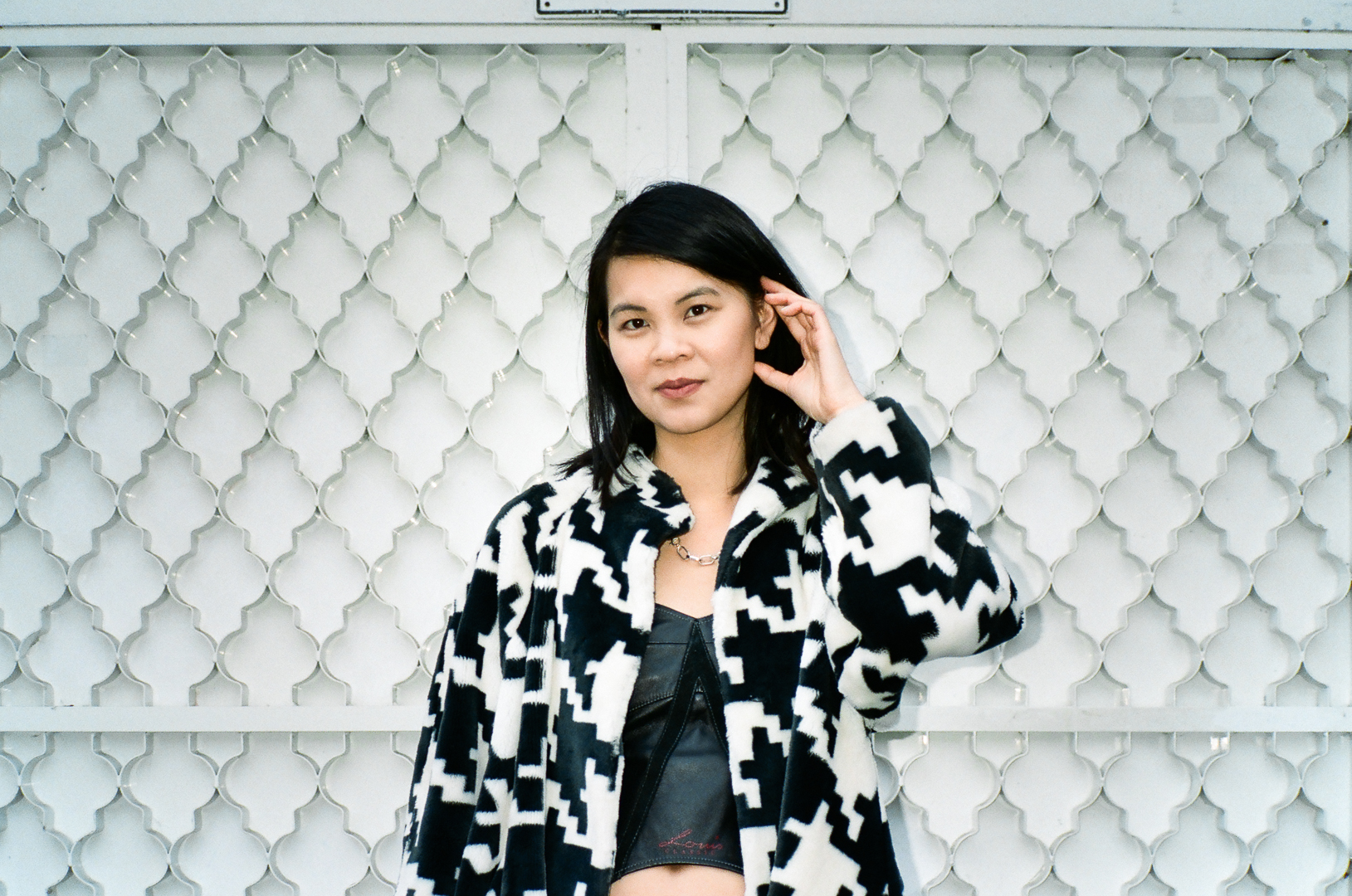
How does the carbon footprint of a sourced vintage item compare to newly manufactured clothing?
Lisa: The fashion industry is the second largest polluter in the world, after oil. With fast fashion creating on-trend pieces for a fraction of the cost, it’s no surprise that people are shopping more than ever. The low quality manufacturing and fast paced trends, also means fast fashion pieces are discarded more rapidly than ever and sit in landfills for several hundred years.
Let’s take a pair of denim jeans; a staple in most people’s wardrobes: Most denim is made from cotton, and a single pair of denim jeans requires 20,000 litres of water and is heavily dependent on pesticides. Then there’s the process of dyeing denim into the various shades of colours, like acid wash, or distressing them through sandblasting… the list goes on. They all require chemicals that inevitably end up in our waters. When you buy vintage denim jeans, you’re not only saving money, but you’re also making a political stand by reducing the demand for manufacturing.
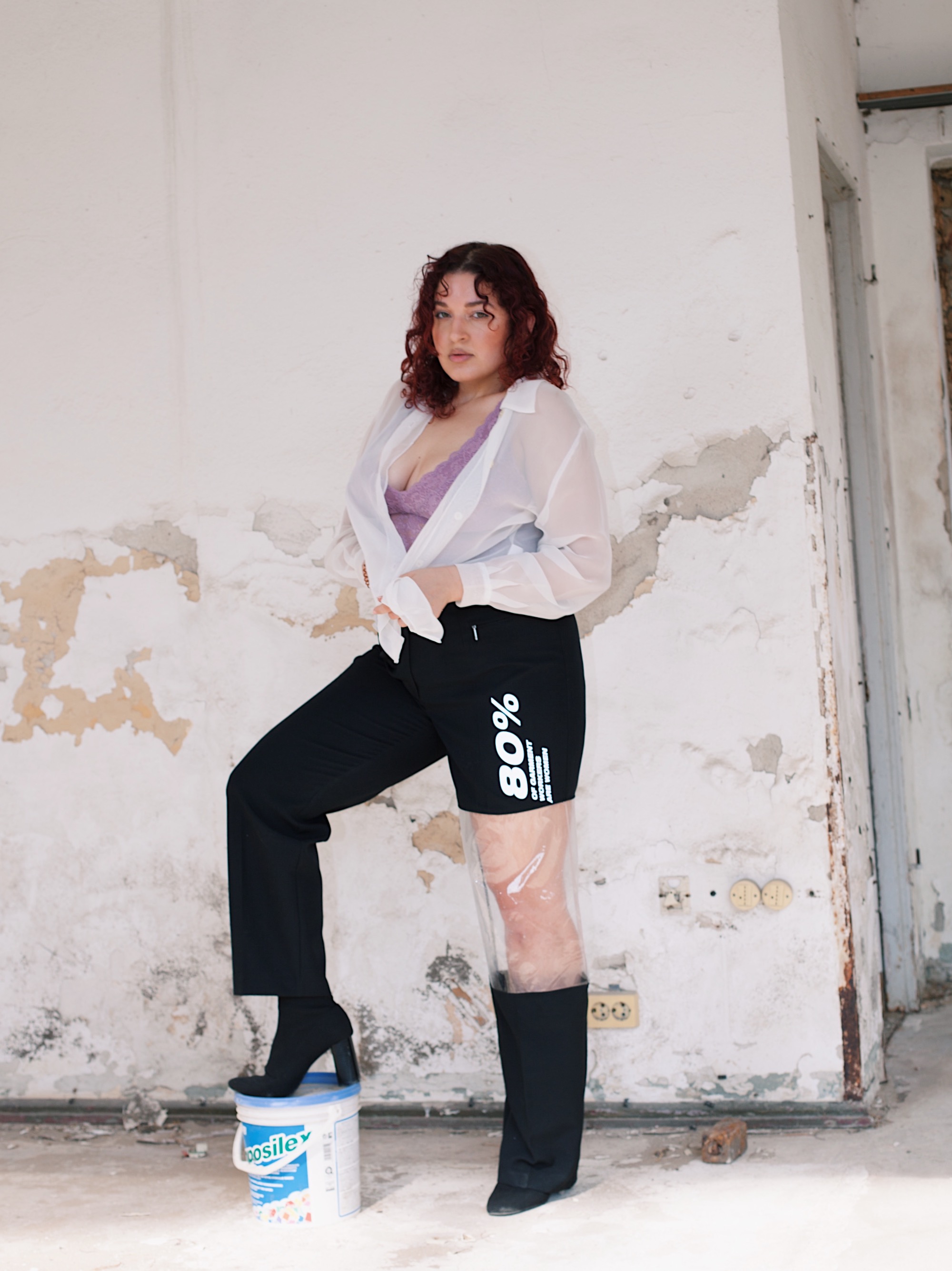
Model: Lele @bruise.r
Can you elaborate on the ways selling vintage is cruelty free and non-exploitative?
Lisa: To answer this question, you have to look at fast fashion. Mass exploitation is at the core of fast fashion. Pioneers such as Zara, H&M and Boohoo are producing 52 micro-seasons a year, selling dresses for as little as 5£. You have to ask yourself: how is this even possible?
The industry relies and thrives on cheap labour. It is estimated that one in six people in the world provide labour to the global fashion supply chain. However, the majority of garment workers are womxn in developing countries such as Bangladesh, Sri Lanka, and Indonesia. Reports like Global Labor Justice have found labour exploitation in the form of extremely low wages, long hours, abuse, and zero maternity leave. For fast fashion brands to continue meeting high demand at low costs, you have to remember that the basic human rights of these women are being taken away.
By selling vintage, I want to de-stigmatise wearing secondhand and encourage sustainability as a garment’s lifecycle should be longer than just a few weeks.

What does 2021 have in store for you and Not Too Sweet?
Lisa: Planning for the future is difficult during the pandemic but I always try to ask myself “What’s on the other side once this is over?” I’m excited to continue our ‘Beyond Club Culture’ photography series where we explore the diverse plethora of talent that is intrinsic to Berlin’s infamous club scene. We have exciting plans to transform the photography series accompanied by interviews into a physical book that can be purchased online and in our brick and mortar location. I also can’t wait for the brick and mortar location to reopen when it’s safe to. I had so much fun hosting pop-up events with Juno Juno Vintage, so I definitely see us hosting more pop-up events with live performances, workshops, and DJs.
_
Portraits of Lisa taken by Rae Tilly exclusively for YEOJA Mag.
To keep up with Lisa on IG click here. To keep up withNot Too Sweet on IG click here. For more fashion, click here. For more interviews, click here.



